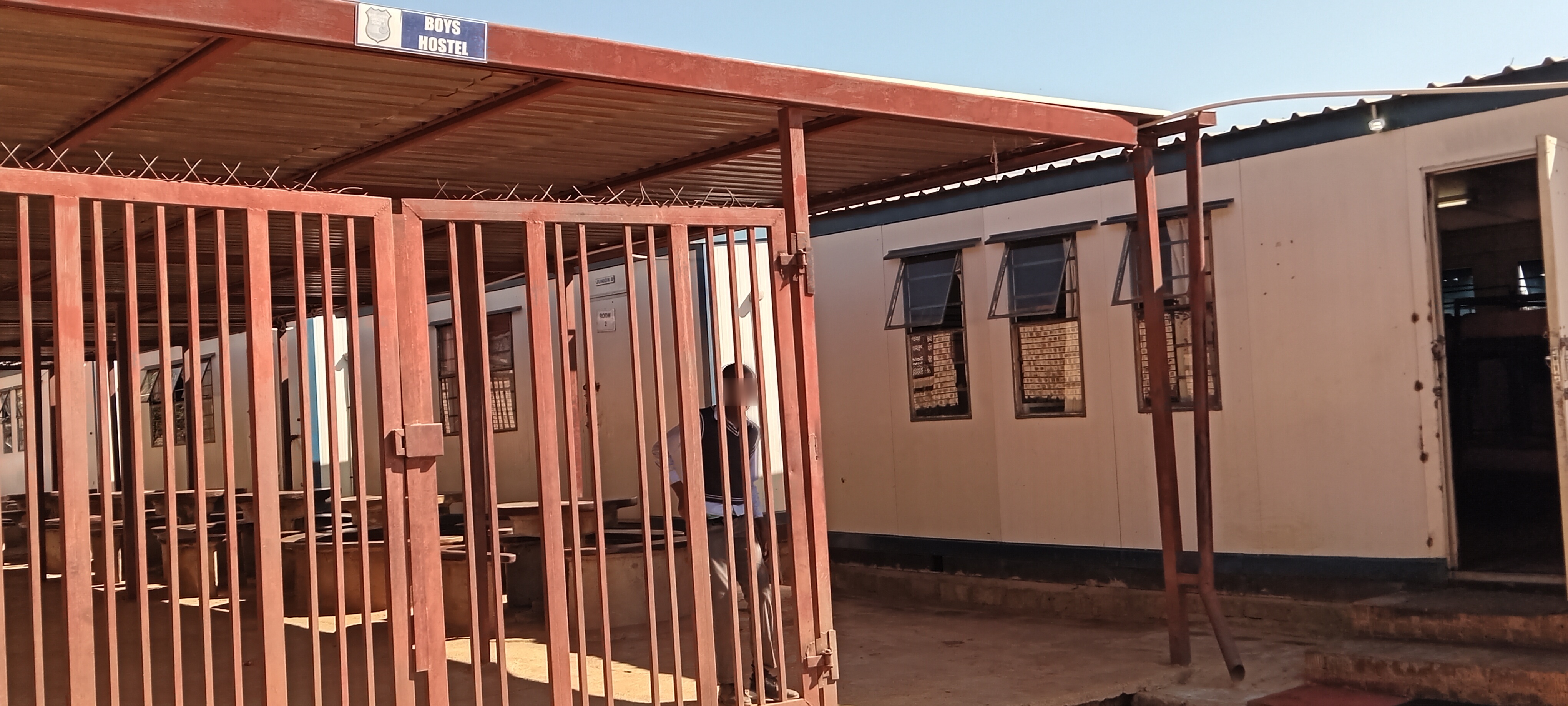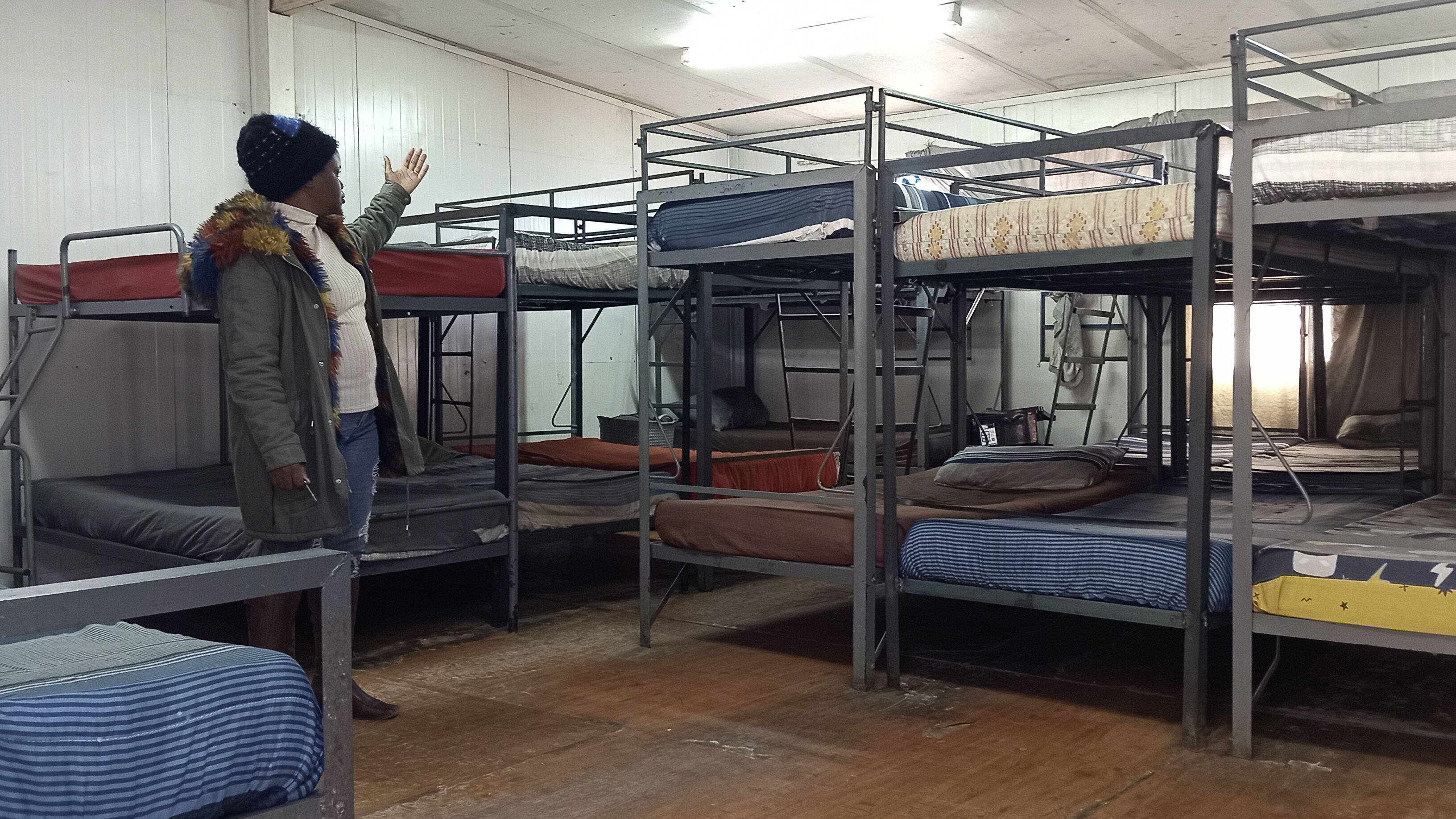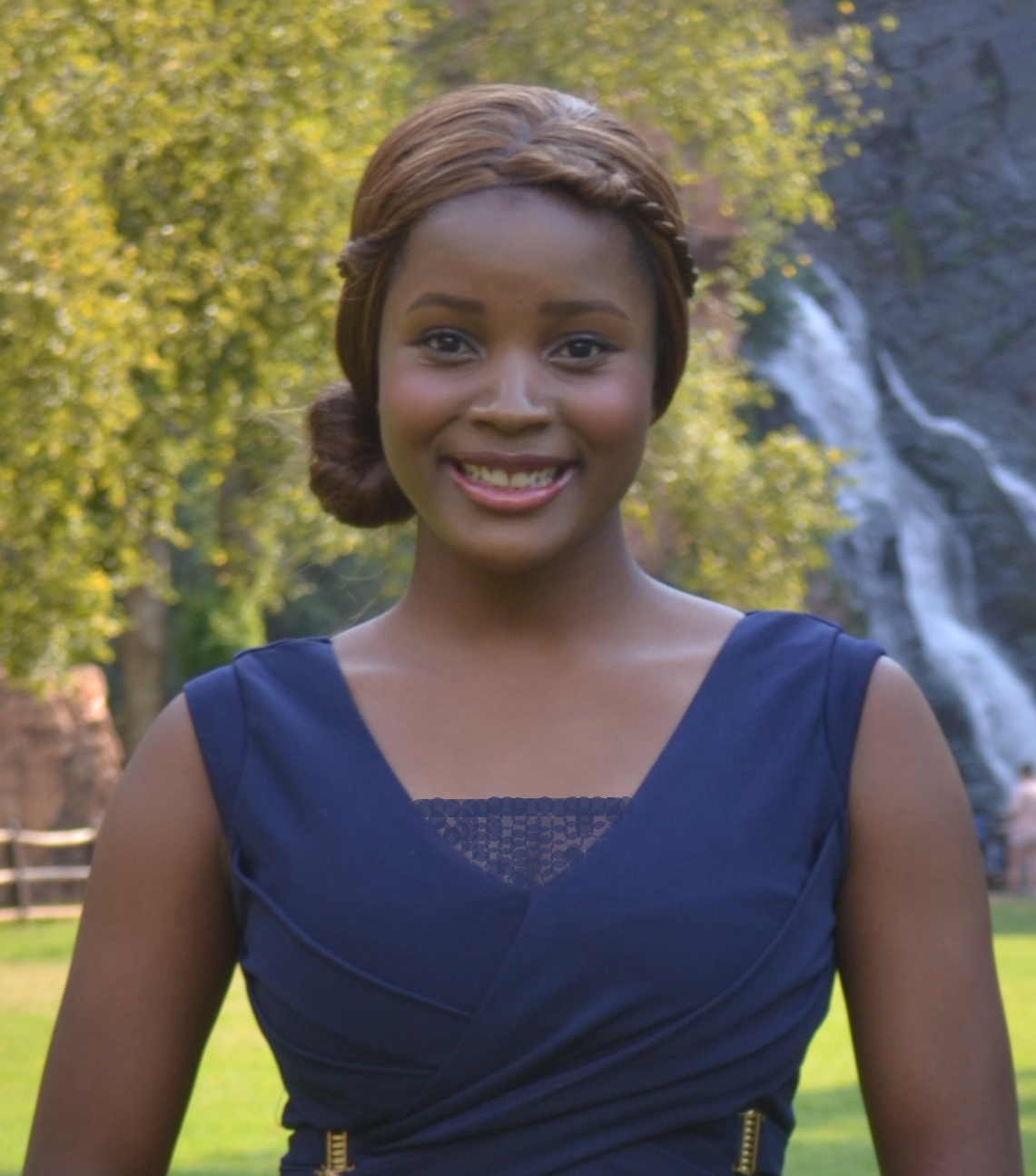
Beds where pupils and boarding staff sleep at Botlokwa Special School. Photo: Ntokozo Abraham/SAAJP
The School Governing
Body (SGB) at a makeshift boarding school in Limpopo have re-counted the
indignity of pupils with disabilities and staff who despite their dire
conditions dwell in dormitories where there are no indoor toilets.
Botlokwa Special
School in Botlokwa village has a total figure of 240 pupils with severe
intellectual disabilities, including autism. The school, which currently has
135 boarding pupils, and 12 boarding staff inclusive of volunteers, cannot
afford to install indoor toilets in the dormitories.
When nature calls, the boarding staffers
who are near their retirement age, have no choice but to urinate in buckets at
night in the full view of 135 children that they share dormitories with. This
is because they do not have separate rooms where they can rest.
Part of the
reason, chairperson of the school governing body (SGB) Lizzy Mothatego explained
is that the Department of Education in Limpopo has neglected its duties to
install toilets and decent showers for pupils with disabilities and the
boarding staff.
Speaking in
Sepedi, one of the boarding staff members expressed that:
“At night, I
have to resort to using a bucket to urinate because there are no toilets inside
the dormitories. And when I accidentally pass gas while urinating in the
bucket, the children laugh at me. There is no privacy for us because we share
rooms with them. The children also use buckets for urinating at night. But whenever
they [children] need to defecate, we have to wake up during the night and
escort them to outside toilets near the kitchen in the dark. Although it is a
walking distance, it feels unsafe at night, especially that the children have
disabilities.”

A pupil passes the boys' makeshift hostel where there are no toilets. Photo: Ntokozo Abraham/SAAJP
She explained
that the school was not developed for boarding, but due to the fact that
children were travelling from far which led to classes starting late and
children arriving home at night, the idea to convert to a boarding school was introduced
and approved by the Limpopo Department of Education.
However, Mothatego said it’s been decades since they have been promised decent boarding facilities by the department. She said that year in and year out this promise was not fulfilled.
Limpopo Department of Education spokesperson, Mike Maringa said, “The school is on the list of SNE schools on the panel of consultants repair and maintenance Phase 1, we will soon appoint the contractors. We will include toilets as part of the scope.”

Chairperson of the school governing body, Lizzy Mothatego inside the makeshift dormitories. Photo: Ntokozo Abraham/SAAJP
To add to their woes, the school cannot afford to refurbish four filthy showers and four toilets used by both boarding and day school pupils, which are located next to the kitchen. The SGB said that the portion of their budget for maintenance of toilets and showers has to be used for “expensive electricity costs” from their supplier, Eskom. Their electricity costs run around R300 000 a year.
“In 2023, the staff
from Eskom came to the school and informed us that we had overpaid. They told
us they owed us about R40,000 and therefore we should skip at least four months
of payments. They assured us they would notify us when to resume payments. We
followed their instructions. However, to our shock, they returned to claim we
owed them money and disconnected our electricity. The bill was over R100,000.
We had to involve a lawyer for assistance. The surprising part is that we had
been making monthly payments, except during the period they told us not to.
Initially, it wasn’t us who owed them; it was them who stated they owed us.
This situation has greatly affected us, hindering development at the school. We
are forced to reduce expenses to manage the electricity bill,” Mothatego
stated.
Mathatego said
that the amount is too steep for a village school with poor facilities, and
that they have been pleading with Eskom to convert them to prepaid.
Mathatego said, “Seeing that Eskom struggles to manage their own affairs, as they said we overpaid and then later they changed to say we owe them, we decided it would be best to switch to prepaid. However, they informed us that we use a three-phase system [25 kVa power output], therefore we cannot convert to prepaid. We need assistance to take control of our electricity usage. With prepaid, we would not incur charges during school closures. The costs are high during winter, yet that’s when schools are closed for holiday.”
Eskom National spokesperson Daphne Mokwena said their desktop analysis revealed that their existing bill is significantly lower than R100 000.
"The R100 000 was a two years ago issue where it seemed they did not service their account from April to August 2023," said Mokwena. But she said Eskom will look into the matter.
This investigation is produced by the Southern Africa
Accountability Journalism Project (SA | AJP), an initiative of the Henry Nxumalo
Foundation with the financial assistance of the European Union. It can under no
circumstances be regarded as reflecting the position of the European Union.


